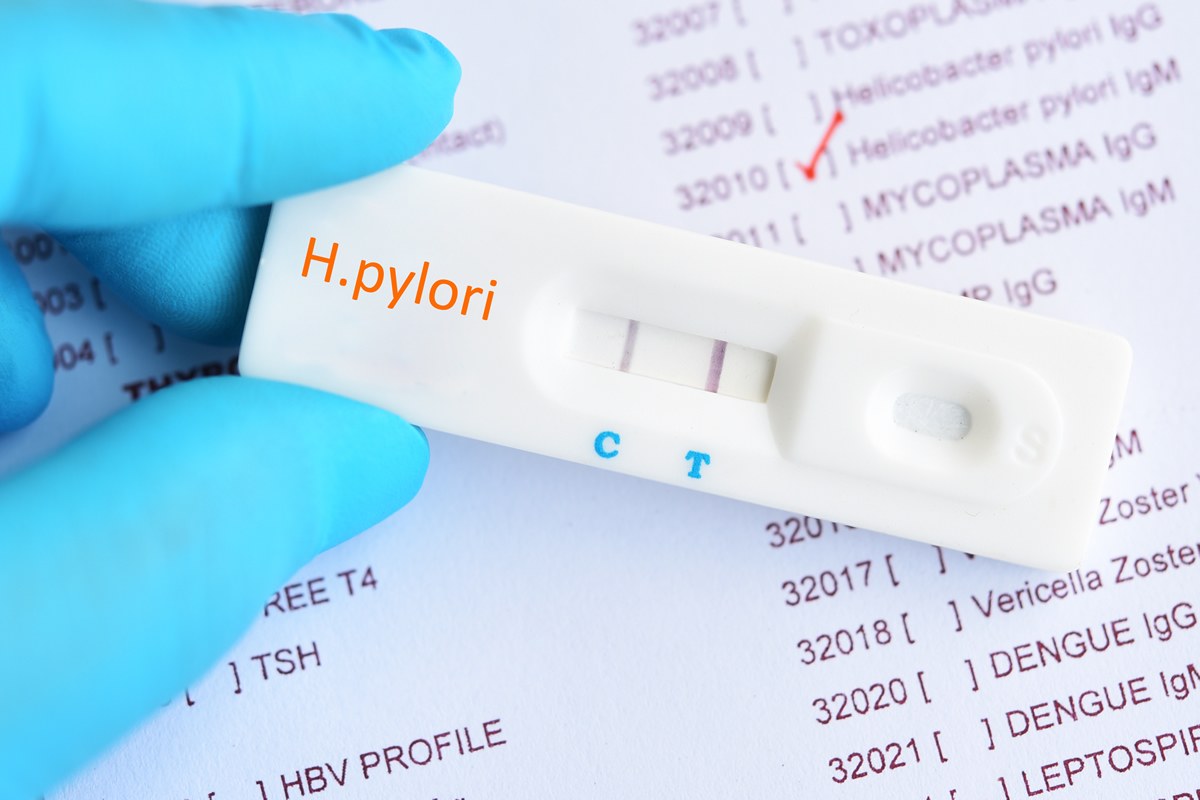Treatment of Helicobacter pylori

Helicobacter pylori (or H. pylori) is a common bacteria that infects the stomach. It attacks the lining of the stomach and leads to abdominal pain, stomach infection, gastric and duodenal ulcers. The H. pylori prevalence can occur when the level of bacteria is significant. The long-term carriage of H. pylori, however, will increase the risk of developing stomach cancer.
The greater prevalence of H. pylori infection is found in many Asian regions including Hong Kong than in western countries. Western countries show an infection rate of around 20 to 30%, 55% in Asian regions including Hong Kong, 75% in Japan. It is believed that Asian people are more likely to get infected than the westerners due to the genetic inheritance, their specific eating habits, lifestyle and living environment. H. pylori is commonly transmitted person-to-person by saliva. The bacteria can also be spread by contaminated food. When one of the family members is infected, others may also run the risk of infection by sharing the meals, using the utensils, drinking the contaminated water. It explains that inter-family transmission may be significant. Among the infected population, around 3-4% may experience abdominal pain, belching, gastroesophageal reflux (GERD) or even gastrointestinal (GI) bleeding caused by severe ulcers. Since some abdominal pains are related with stress and anxiety, patients may ignore symptoms and delay their treatment.
Diagnosis
The common diagnostic methods listed below are highly reliable with 90 percent accuracy.
- The urea breath test can help diagnose the H. pylori infection. The test is simple, rapid, and safe. Patients need to collect their breath samples. The results are usually available one to two days after the test.
- Gastroscopy: During the procedure, if abnormalities are detected, a tissue sample (biopsy) can be removed and sent to a laboratory for testing the H. pylori infection.
- Stool test: The stool samples are collected and submitted to the laboratory for detection of H. pylori antigen in the faeces since the antigen is present in the stool sample of the carrier. The result can be obtained within one week.
Patients should take antibiotics for bacterial eradication when noticing H. pylori infection. Eating utensils and drinking glasses should never be shared. A triple therapy with Proton pump inhibitor (PPI) and two antibiotics (Amoxicillin and Clarithromycin) is used for H. pylori treatment. The group of drugs should be taken at the same time during a one-week or two-week course of treatment. The bacterial eradication rates can reach 95%. After 6 weeks with completion of the therapy, patients may be requested to have a second urea breath test. If the test result is negative, it thus ensures the success of H. pylori eradication. As the recurrence rate of H. pylori after eradication is quite low, patients can indeed recover completely.
The PPI-based triple therapy may have some subtle side effects including stomach discomfort, nausea, diarrhoea, and head ache. Some patients may stop the therapy that can reduce the effectiveness of the therapy and make the bacteria become resistant to the antibiotics.
With the improvement of personal and environmental hygiene, and more infected individuals are taking the medications, the global population with an active H. pylori infection is declining. On the other hand, H. pylori becomes the antibiotic-resistant bacteria that pose threat to human health. The overuse of antibiotics while catching a cold or having a sore throat, incomplete courses of prescribed antibiotics, and the misuse of antibiotics can speed up the development of resistance.
Patients suspected of antibiotic-resistant should let the doctor know prior to the gastroscopy. Doctor can remove a small piece of biopsy to conduct a bacterial culture study for identifying the antibiotic resistance.
Smoking may affect adversely the cure rate for H. pylori infection in patients treated with antibiotics. Patients should quit smoking that can help the effective treatment.
For patients with H. pylori infection, it is essential to follow the doctor's treatment instructions and improve their lifestyle to achieve eradication of the infection. Patients should also limit or avoid spicy foods and take anti-inflammatory drugs after successful eradication of H. pylori.
*The above information is for reference only, please consult your doctor for detail.

 3405 8288
3405 8288
